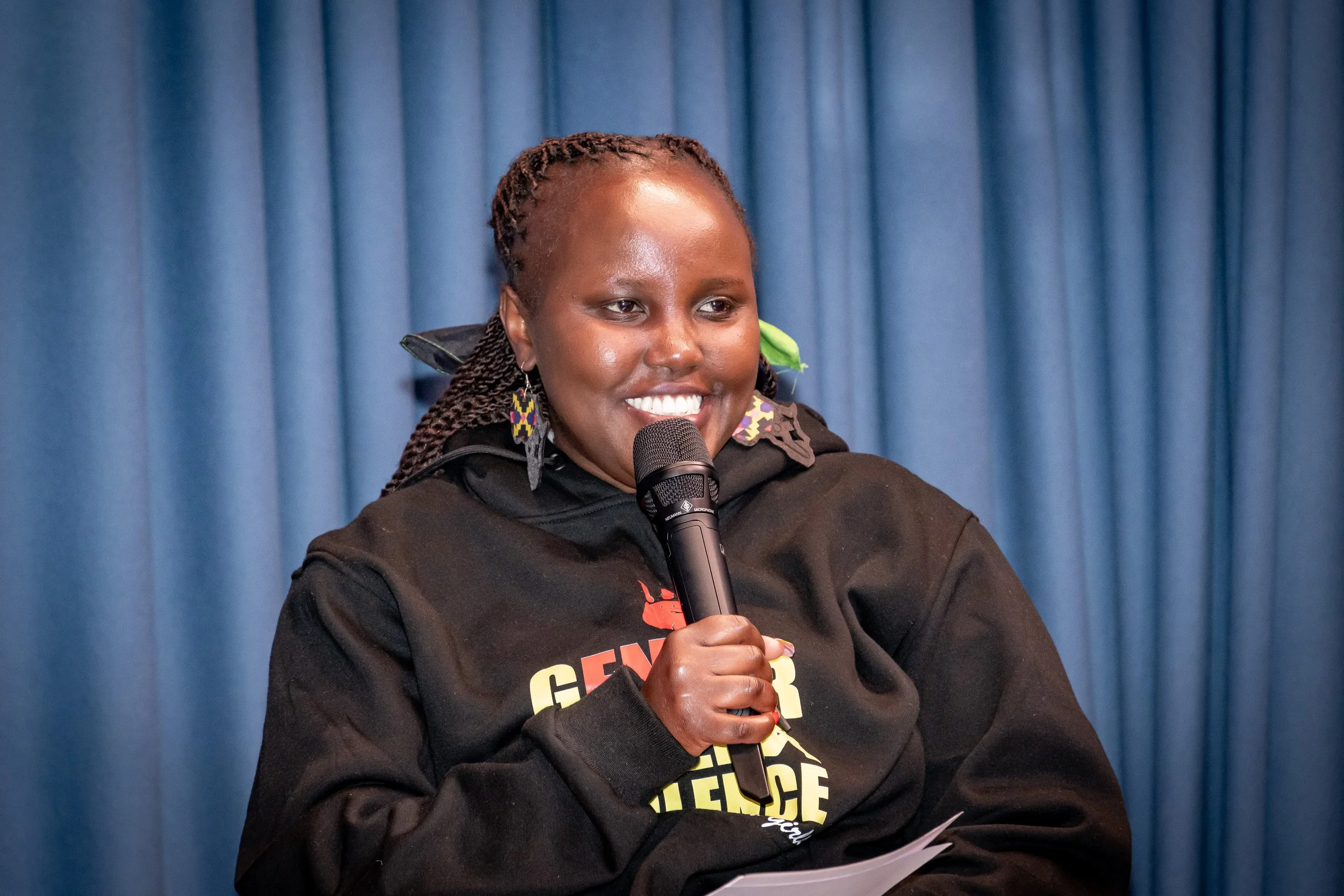Ending gender-based violence discussion in Oslo
“Is it a home if you’re living where there is violence? Is it a home if you have an address but it’s not safe?” Those are the rhetorical questions posed in the opening moments of the Cities Ending Homelessness session focusing on tackling women’s homelessness and gender-based violence.
The session featured insights from Kenya-based Nancy Waweru, Project Regional Hub Manager Head of Programmes at Vijana Amani Pamoja, Kenya, and Bergen-based Irene Angelskår, Gestalt therapist at Hannas Hus, a Norwegian shelter for women experiencing homelessness and substance addiction.
Facilitated by Homeless World Cup International Partnerships Manager Zoe Hopkins, the session covered key issues and themes around what homelessness looks like for women specifically, and how the Norwegian and Kenyan programs are tackling these women-specific challenges in their own settings.
What was clearly apparent throughout the session was that the Kenyan and Norwegian programs are diverse, but they had many commonalities in their needs and approaches. Both work with the women in front of them, meeting them where they are in their drug addiction or homelessness experience. Both provide safe spaces, counselling, and connection with other services. Both are working to end gender-based violence and abuse and lack of access to safe housing, be that through vulnerability through drug addiction and mental health or intimate partner violence and poverty. (So much so, that Waweru’s shirt was printed with an end-Gender-based violence tag line.)
Violence against women is, Nancy reminded us, a human rights violation. Femicide, female genital mutilation, and cultural norms that devalue women and their societal roles are what they are facing and working to debunk daily in Kenya. There, Waweru and her peers work with women who often experience shame, blame, anxiety, and guilt relating to their experiences. They’re also working to shift men’s attitudes and approaches, moving from seeing them as perpetrators and instead as gender-equality champions.
Hanna’s Hus provides three tiers of accommodation for women experiencing drug addiction and homelessness—overnight accommodation, short-term cohabitation accommodation, and graduation-level accommodation to help women transition into living independently. The Kenyan-based program provides a football-based curriculum that involves skills and game play set alongside service connection, education, mentoring, and business grants. Both aim to provide wholistic, ‘multisectorial’ support, adaptable and adapted to participants’ needs. Both are innovating in the space of women’s homelessness, providing models from which others can learn and build.
The Cities Ending Homelessness sessions will continue throughout the week. Find out more information via the website:
https://www.homelessworldcup.org/oslo-cities-ending-homelessness-schedule.
To learn more or to request to connect with any of our speakers, please contact us at info@homelessworldcup.org
Words by Fiona Crawford | Photos by Donnie Nicholson and John Anderson


